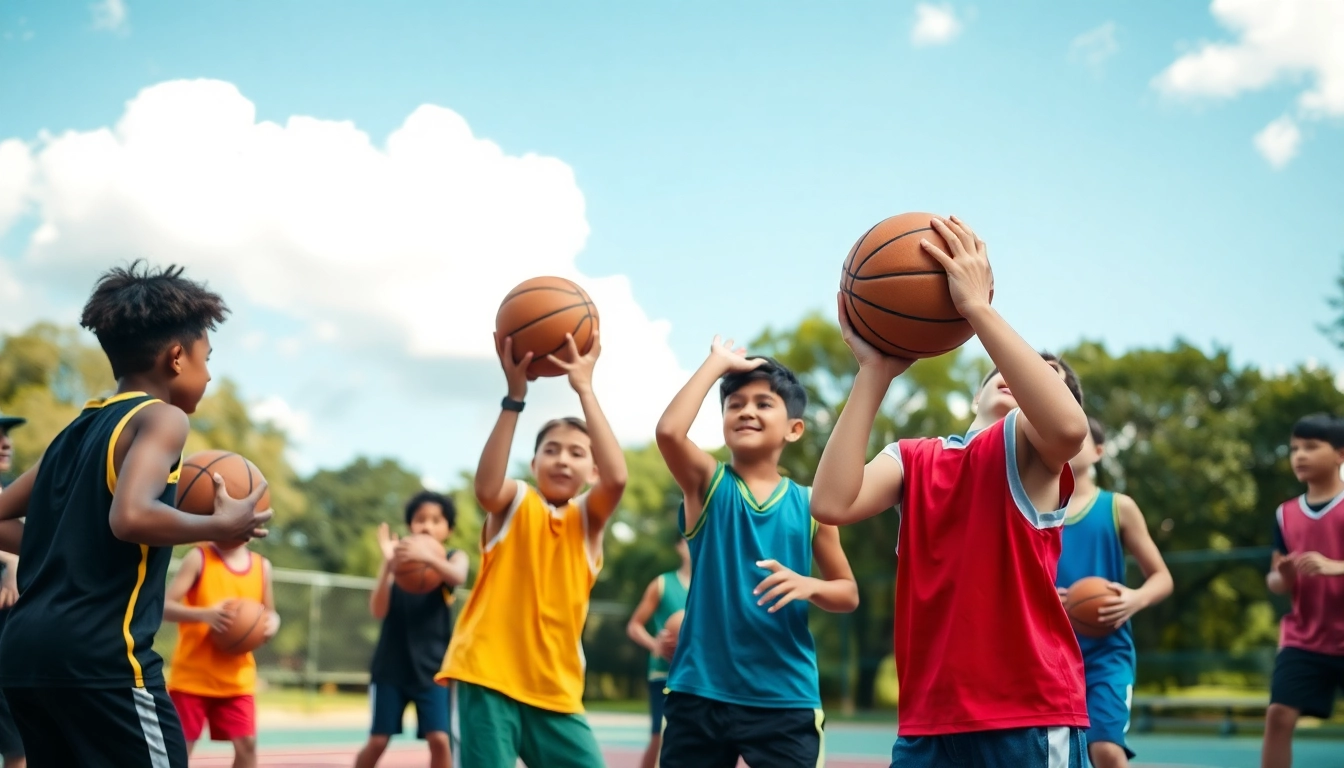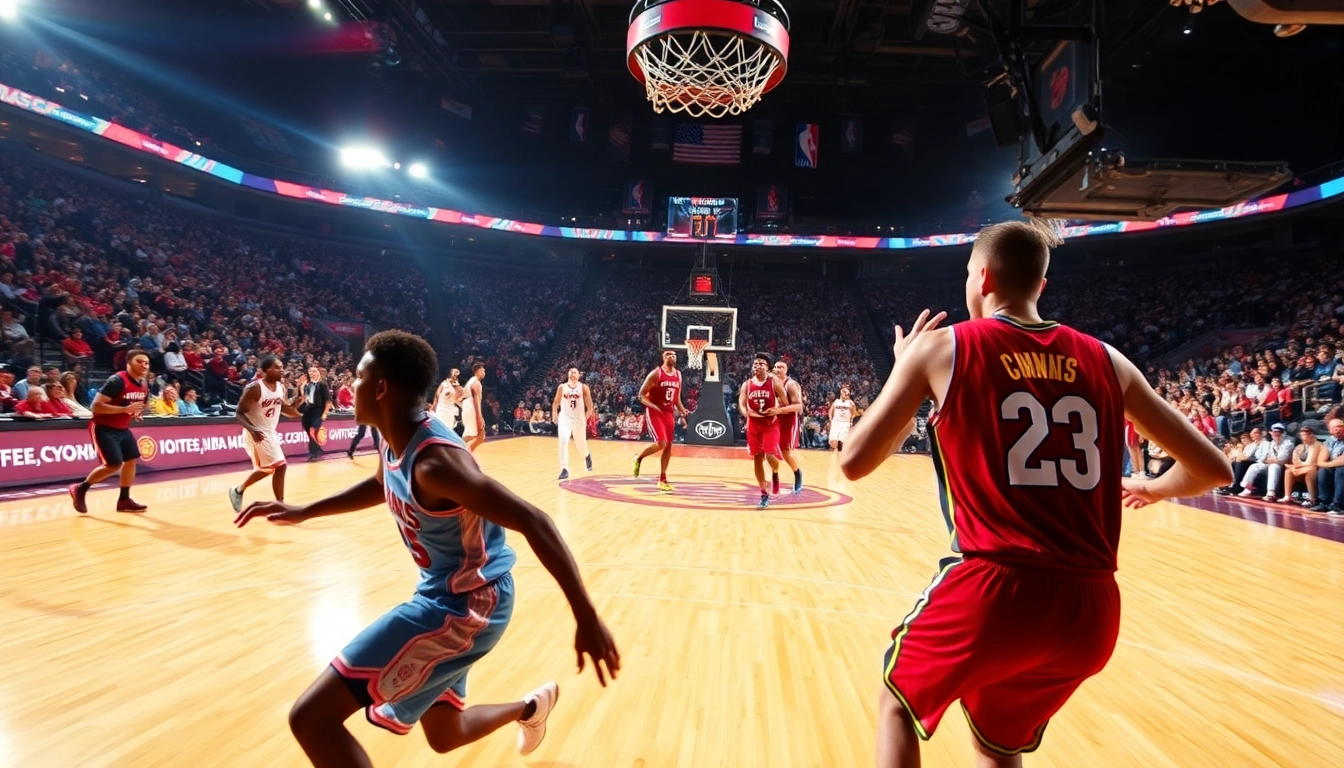Understanding the Needs of Young Basketball Enthusiasts
The journey of a young basketball enthusiast is filled with excitement, learning, and personal growth. However, understanding their unique needs is essential in nurturing their passion for the game. At the core, young players seek guidance, encouragement, and opportunities to develop their skills. Incorporating young basketball enthusiasts into supportive environments can lead to not only improved athletic performance but also enhanced personal and social skills.
Psychological Benefits of Sports for Kids
Engagement in sports offers numerous psychological benefits for children, particularly those who are passionate about basketball. By participating in team sports, young players learn critical life skills such as teamwork, discipline, and resilience. The structure of basketball practice and games provides a sense of routine and can positively influence mental health by reducing anxiety and depression levels. Furthermore, accomplishments like scoring points or improving in drills contribute to a child’s self-esteem and self-worth.
Common Challenges Faced by Young Players
Despite the many benefits, young basketball enthusiasts often encounter challenges. One significant hurdle is the pressure to perform, which can lead to burnout or loss of enjoyment. Other challenges include issues like lack of access to quality coaching, difficulties in balancing academics and sports, and navigating interpersonal relationships with peers on and off the court. Recognizing these hurdles is crucial for parents, coaches, and community leaders to provide the necessary support and resources.
Importance of Role Models in Basketball
Role models play a vital role in shaping the experiences of young athletes. Whether they look up to professional players, coaches, or even older peers, these individuals can significantly influence a young player’s motivation and aspirations. Having relatable figures who embody dedication, hard work, and sportsmanship can inspire youngsters to adopt similar values in their own athletic journeys. Initiatives that connect aspiring young players with established athletes can create powerful mentoring relationships that foster growth.
Essential Skills for Young Basketball Enthusiasts
For young basketball enthusiasts to thrive, mastering essential skills is paramount. The foundation of a successful basketball career begins with a set of core competencies that every player should develop.
Fundamental Techniques Every Young Player Should Master
The fundamental skills of basketball include dribbling, shooting, passing, and defense. These techniques form the backbone of an individual player’s skill set. Practicing dribbling aids in improving ball control and footwork, while focused shooting drills enhance accuracy. Passing drills emphasize the importance of teamwork and facilitating plays — crucial attributes for any player looking to excel. Defensive skills, including positioning and footwork, are equally important as they allow players to contribute to their team’s overall performance.
Top Drills for Skill Development
There are numerous drills specifically designed to help young basketball enthusiasts refine their skills. For instance, the “Around the World” shooting drill improves shooting accuracy from various points, while “Lay-Up Lines” foster proper footwork and shot execution near the basket. “Defense Slide Drills” enhance lateral movement and agility, crucial for guarding opponents effectively. Coaches should leverage a variety of drills to ensure comprehensive skill development, keeping practices dynamic and engaging.
Teamwork and Communication on the Court
Emphasizing teamwork and communication is essential in developing well-rounded basketball players. Young athletes must learn the value of collaboration within a team, which not only leads to better on-court performance but also fosters friendships and social connections. Coaches should encourage players to communicate effectively during practices and games, using positive reinforcement to build a supportive environment where players feel comfortable sharing ideas and strategies.
Creating a Positive Coaching Environment
Coaching styles significantly influence the experiences of young basketball players. Fostering a positive coaching environment can greatly impact a player’s relationship with the game.
Encouragement Instead of Pressure for Young Athletes
The atmosphere created by coaches should be one of encouragement rather than pressure. Coaches should prioritize skill development and personal growth over winning at all costs. This approach helps young athletes build confidence, assures them that making mistakes is part of the learning process, and cultivates a love for the game. Openly expressing positive feedback and recognizing individual achievements, no matter how small, can motivate players to continue improving.
Setting Achievable Goals for Development
Goal-setting is a powerful tool for youth athletes. Coaches should work with players to set achievable short-term and long-term goals, tailored to individual skill levels and aspirations. These goals can range from mastering a dribbling technique to improving free-throw percentages. Regularly revisiting and adjusting these goals fosters a growth mindset and reinforces a player’s commitment to their development.
Fostering a Love for the Game
Ultimately, fostering a genuine love for basketball should remain the primary objective of any coaching environment. Coaches can achieve this by incorporating fun activities into practices and promoting the enjoyment of the sport above competitive success. Organizing team bonding events, friendly scrimmages, and basketball-themed community events can create positive associations with the game and encourage young players to continue their involvement.
Engaging Resources and Activities for Young Players
In addition to effective coaching and skill development, providing young basketball enthusiasts with engaging resources is essential to keep them motivated and learning.
Books and Media for Young Basketball Enthusiasts
Books, documentaries, and online content about basketball not only serve as educational resources but also inspire young players. Engaging titles such as “The Crossover” by Kwame Alexander and “Hoop Dreams” provide narratives that resonate with their experiences and aspirations. These resources can instill a deeper understanding of the game and its history, highlighting the importance of perseverance and hard work.
Local Camps and Clinics that Make a Difference
Finding local basketball camps and clinics is another excellent way for young enthusiasts to refine their skills during the off-season. Programs run by reputable coaches and skilled players offer intensive training and the chance to connect with other like-minded individuals. Many of these camps emphasize not just sports skills but also life skills that players can carry beyond the court.
Interactive Games to Reinforce Learning
Incorporating technology into basketball training can create a fun learning environment. Interactive games and mobile applications designed for practicing skills such as shooting accuracy and dribbling speed can keep players engaged. Explorative online platforms also allow for off-court learning where players can analyze game footage or practice strategies, enhancing their understanding of the game in an enjoyable way.
Parent and Community Involvement in Youth Basketball
The involvement of parents and the community is essential to the success of young basketball programs. Their support nurtures athletes both emotionally and logistically, creating a well-rounded environment for youth development.
How Parents Can Support Their Young Athletes
Parents can play an active role in their child’s basketball journey by attending games, volunteering with local programs, and encouraging regular practice at home. Open communication about their child’s experiences and feelings towards basketball can help parents identify areas of support needed. Creating a balance between being supportive and allowing independence is key, ensuring that the child feels empowered in their pursuit of skill development.
Building Community through Basketball Programs
Communities that invest in youth sports foster environments where children can develop both athletic skills and life skills. Local programs not only develop young talent but also promote social cohesion by bringing families together. Community-led basketball events, such as tournaments and fundraisers, can cultivate a sense of belonging and pride, motivating children to stay engaged and committed to the sport.
Leveraging Social Media for Engagement and Inspiration
In today’s digital age, social media can be a powerful tool to engage young basketball enthusiasts. Coaches and leagues can utilize platforms like Instagram and TikTok to share highlights, training tips, and motivational stories. These platforms can inspire players by showcasing achievements and connecting them with role models, but it’s crucial to manage the content to ensure it serves as positive reinforcement and not pressure for competitive success.



